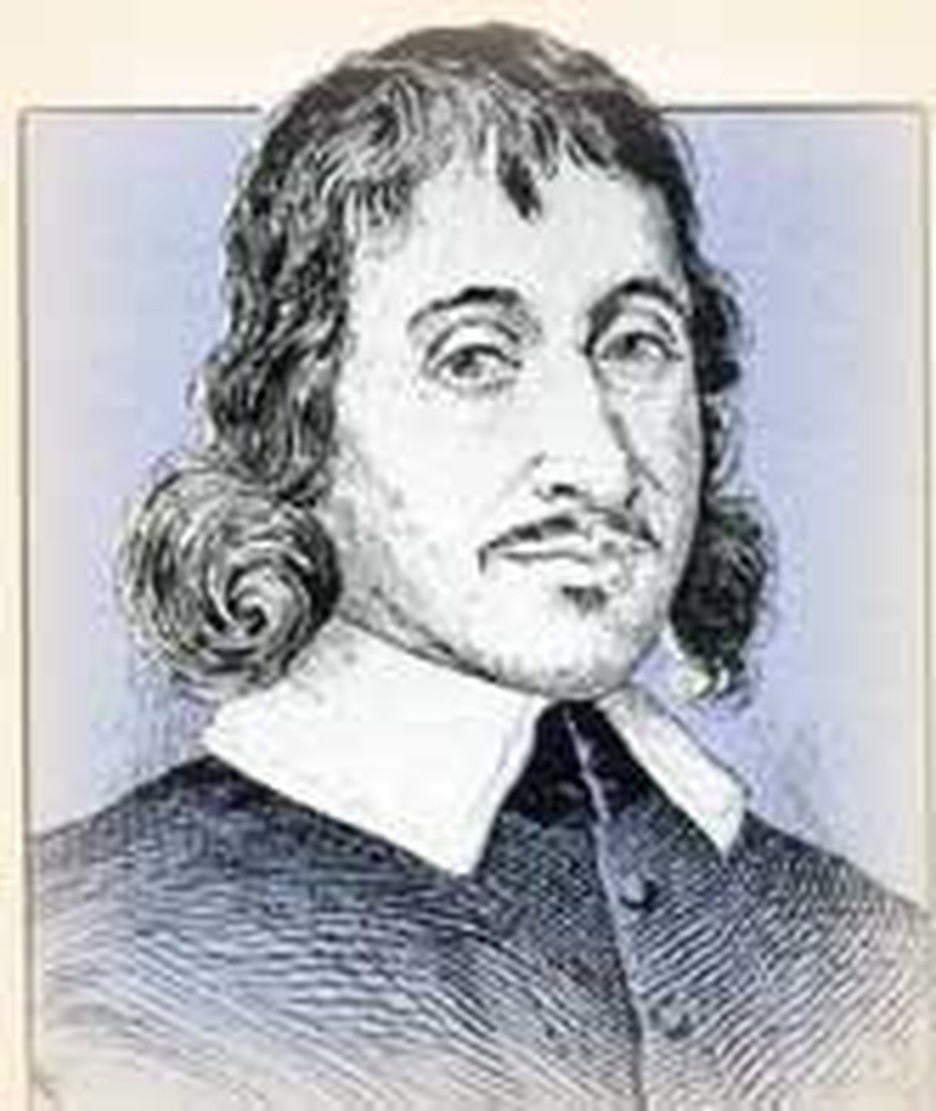
The year 1588 is often considered a turning point in world history. It was during that year that the vast Spanish Armada of 130 ships sailed to England to try to capture the island kingdom for Spain's Catholic monarch, Philip II. The English attributed the failure of the invasion to a storm raised by divine Providence. The defeat of Spain's fleet enabled England to gain superiority of the seas and enhanced her ability to establish colonies in America. The English felt God had chosen their land for greatness in the future.
Who was John Winthrop?
1588 was also the year John Winthrop was born in Suffolk, England. Winthrop would become one of the leaders in expanding England's empire in America; more importantly, he was an important instrument in establishing Christian consciousness in the new world.
John Winthrop was the only son of Anne and Adam Winthrop, lord of the manor of Groton. The family estate had formerly been the Abby of Bury St. Edmunds, one of the abbeys offered for sale when Henry VIII confiscated all the monasteries in England. John Winthrop's great-grandfather had bought the land, and the family had increased its wealth from the making and trading of cloth.

Winthrop's Puritan Family
The Winthrops had strong Puritan leanings; they wanted the Church of England to be rid of any ritual or ceremony that did not have the authority of the Bible. Even as a boy, John Winthrop had a sincere devotion to God and considered becoming a minister. Although he finally chose to follow his father in trade and succeed him as lord of the family estate of Groton Manor, Winthrop never ceased to seek to honor God in all of his undertakings.
While continuing to oversee his manorial lands, Winthrop studied law at Grey's Inn in London. As an attorney, his legal duties often brought him to London on business. The immorality and degeneracy of the city disturbed Winthrop, and, with several others, he published "Common Grievances Groaning for Reformation." Winthrop, along with many other Puritans, was intent on reforming English society. As the decade of the 1620's wore on, however, the religious and political situation in England worsened. King Charles I was determined to rule as an absolute monarch and not at all in sympathy with Puritan goals. Persecution of the Puritans increased, and many thought of emigrating. John Winthrop thought of going to Ireland, but by 1629 a group of Puritans had formed the Massachusetts Bay Company to begin a settlement in America. John Winthrop was elected governor of the Company, and within a short period of time, he had enlisted 700 colonists for the new settlement. He organized 11 ships with their sailors and officers, arranged for provisions and supplies for the colony, and made certain there were enough skilled craftsmen and laborers for the colony's development.
Pictured Below: Winthrop's Flagship the Arbella

Why did they come?
When the Massachusetts Bay colonists sailed for America on March 22, 1630, Winthrop and his fellow Puritans left behind their patriarchal homes and financial security for an unknown American wilderness. In "A Model of Christian Charity," a sermon Winthrop preached during the voyage to America, the Massachusetts governor emphasized that the purpose of their going to America was to increase the body of Christ and to preserve themselves and their children from the corruption of this evil world. The colonists had made a covenant together to obey the commandments of God in their enterprise, and the Lord would surely bless them in their new land if they continued to follow Him. If they maintained Christian unity, Winthrop was certain the Lord will be our God and delight to dwell among us as his own people...when he shall make us a praise and a glory, that men shall say of succeeding plantations: the Lord make it like that of New England: for we must Consider that we shall be as a City upon a Hill, the eyes of all people are upon us.
Winthrop's imagery of the model Christian society as a city on a hill, taken from Matthew 5:14, became a motif that has inspired American literary and political thought into the twentieth century. From Winthrop and the Puritans, America inherited the idea that in some way this land was to be an example and beacon of light to the rest of the world.
During the 1630's, over 55,000 Englishmen fled to America. Half of these settled in New England, and Winthrop wrote in his journal that "Godly people in New England began now to apprehend a special hand of God in raising this plantation." Winthrop devoted the last two decades of his life to establishing the Massachusetts Colony. He was a pivotal figure in New England's critical early decades.
|
"He supports us in our dangers" John Winthrop and his wife Margaret had a congenial marriage full of love and godly companionship. While in London in 1629, Winthrop wrote his wife: Mine own, mine one, my best beloved, - thinks it is very long since I saw or heard from my beloved, and I miss already the sweet comfort of thy most desired presence: but the rich mercy and goodness of my God makes supply of all wants: Blessed be his great and holy name. Ah my good wife, we now find what blessing is stored up in the favor of the Lord, he only sweetens all conditions to us, he takes our cares and fears from us, he supports us in our dangers, he disposeth all our affairs for us, he will guide us by his counsel in our pilgrimage, and after will bring us to glory. |







